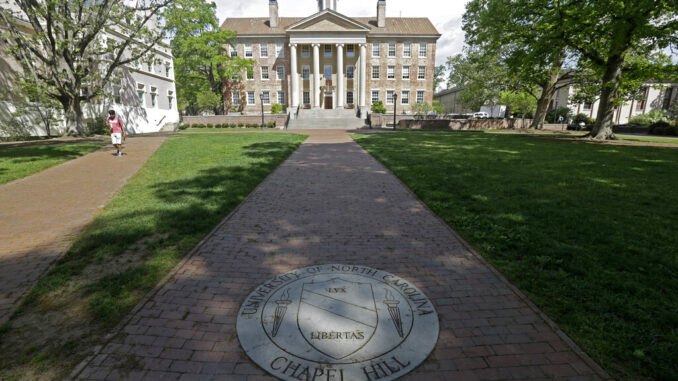
The fish stinks from the head, goes the old saying.
Presidents of elite universities have been at the head of the failed response to a rash of antisemitic harassment and chaos on too many campuses. Yet college presidents are not alone. Those responsible for governing these institutions, their boards of trustees, have also failed to rise to the moment, doing little or nothing to address the crisis.
But it is not the fate of all university board members to be potted plants. A small minority of American university trustees have demonstrated that it is possible for boards to lead the way in restoring fundamental values that allow higher education to flourish: free inquiry, civil discourse, intellectual diversity and sanity.
At the University of North Carolina-Chapel Hill, the board of trustees has taken bold action over the last two years to rehabilitate the prestigious public university. This earned it the Jerry L. Martin Prize for Excellence in College Trusteeship, awarded annually by the American Council of Trustees and Alumni. It has also earned the board a reputation for visionary leadership among academic reforms.
The UNC board’s work predates the convulsions of October 2023. In 2022, it fortified its commitment to robust and open debate by adopting both the Chicago Principles on Freedom of Expression and a policy of institutional neutrality as laid out by the Kalven Report developed at the University of Chicago in 1967.
Per the report, institutional neutrality “arises out of respect for free inquiry and the obligation to cherish a diversity of viewpoints” and militates “against the university taking collective action or expressing opinions on the political and social issues of the day.” Now other universities are following suit, having paid a dear price for their delay. Harvard University just announced it would stop issuing political statements last month — nearly two years after the UNC board’s action.
Having laid the groundwork with the Chicago Principles and institutional neutrality, the board turned to developing institutional infrastructure aimed at fostering a healthy diversity of opinion on campus. In early 2023, it voted unanimously to establish and fund the School of Civic Life and Leadership (SCiLL), a new academic unit that aims to promote civic engagement and discourse, welcoming heterodox faculty and visiting scholars. It offers a Civic Life and Leadership Minor as well as varied courses on topics including scientific knowledge, classical philosophy, political psychology and microeconomics. The core of SCiLL’s mission is to expose students to diverse points of view, equipping them with the core competencies necessary to be good citizens.
In the face of irresponsible partisan criticism, the board stood tall, explaining the soundness of its decision. As Chairman John Preyer wrote in Business North Carolina, the board worked with the support of then-chancellor Kevin Guskiewicz and other university leaders, including College of Arts and Sciences Dean Jim White, to develop a nonpartisan school committed to forming an educated citizenry, which is a core function of higher education in a free society.
Success at faculty recruitment has already vindicated the board’s approach: Jed Atkins, the distinguished scholar and teacher of classical studies at Duke University and director of Duke’s Civil Discourse Project, has now come to Chapel Hill as SCiLL’s inaugural dean.
UNC trustees took steps to enshrine meritocratic and race-neutral principles in university policy, as well. Following the Supreme Court decision ending the discriminatory practice of race-based admissions, the UNC board passed a resolution affirming compliance with the court’s ruling, extending its logic from admissions to hiring and warning admissions officers not to find proxies for race to work around the decision.
In response to the recent havoc that spread across American campuses as pro-Hamas radicals and outside agitators erected encampments, occupied buildings and harassed Jewish students, trustees voted unanimously to divert $2.3 million from diversity, equity and inclusion programming to public safety. UNC chose to preserve order and protect the safety of its students instead of funding programs that promote far-left ideology and virulent antisemitism.
Supported by the trustees’ strong leadership, Interim Chancellor Lee Roberts was able to respond decisively to the Jihadist radicals, calling in law enforcement to clear the illegal encampment. And when protesters took down the American flag at UNC, Chancellor Roberts personally led law enforcement to restore it.
Trustees elsewhere should take note. This is what leadership looks like.
Michael B. Poliakoff is president of the American Council of Trustees and Alumni.



